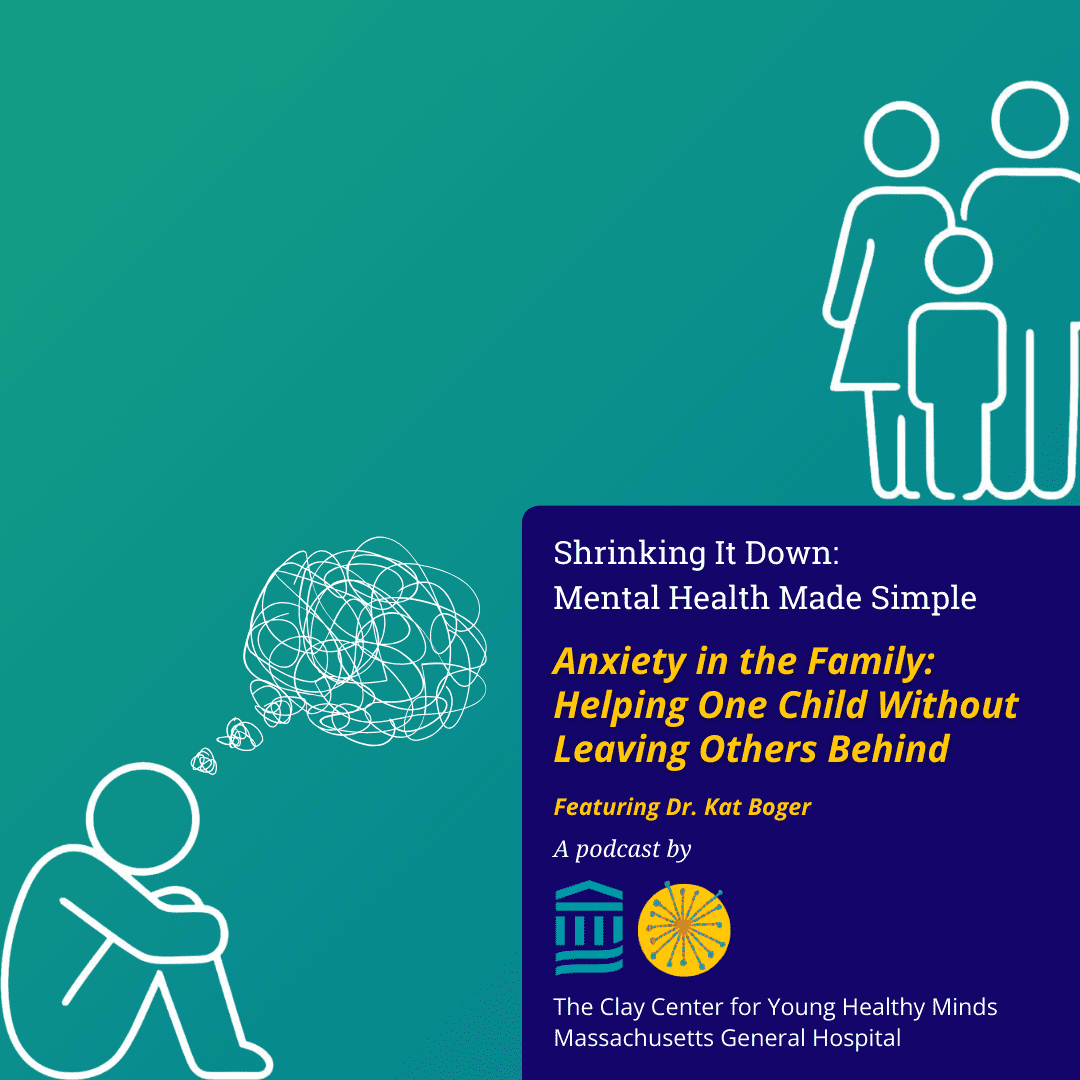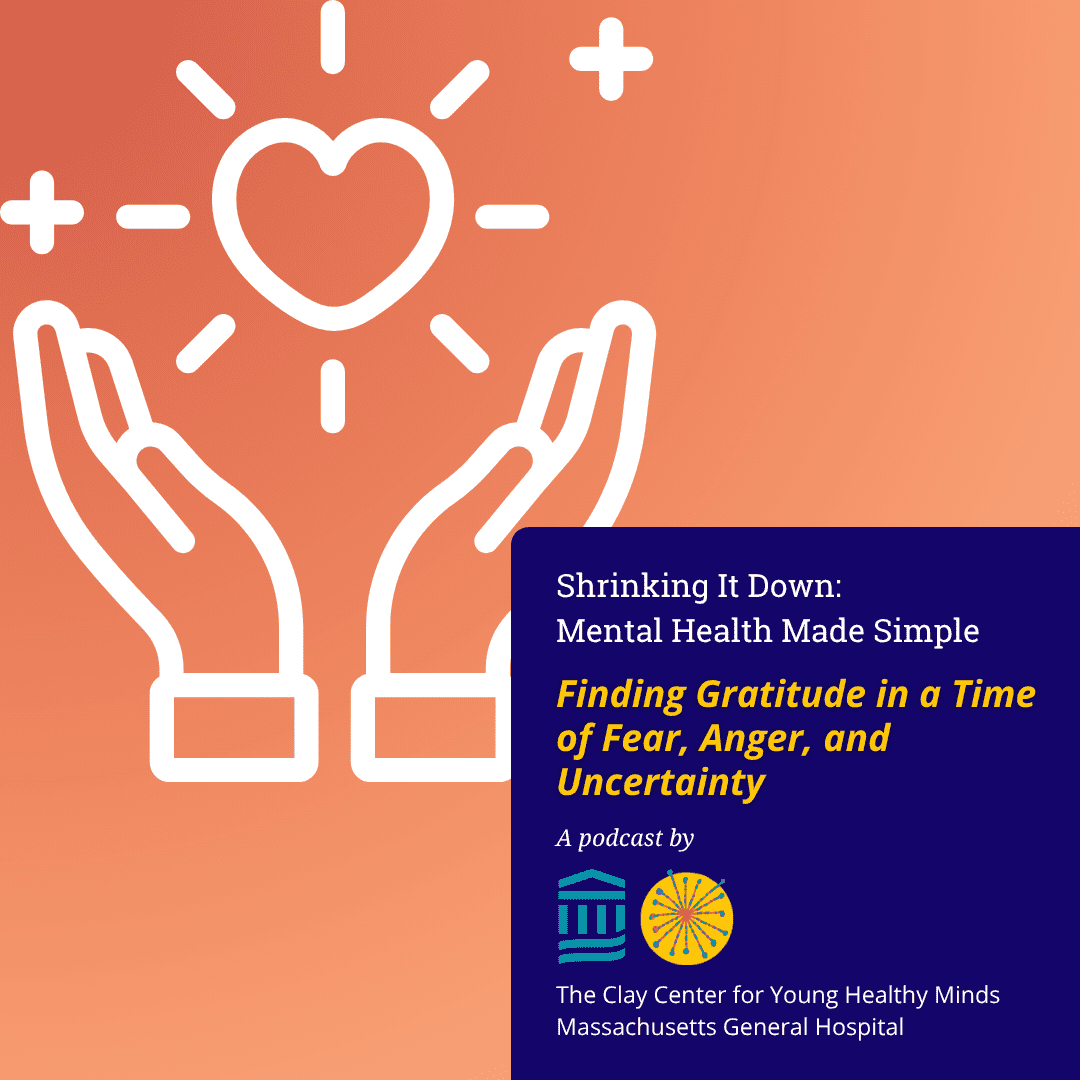The Holidays This Year: Expressing Gratitude During a Time of Severe Deprivation

Posted in: Hot Topics, You & Your Family
Topics: Hot Topics
Will the Circle Be Unbroken – Arranged and played by Dr. Gene Beresin
It’s that time of the year. The Holidays.
We all know it. Families are making plans for Thanksgiving and Christmas, Hanukah and Kwanzaa. We’re already seeing holiday ads on TV, pop ups on our internet sites, and on social media. And Thanksgiving as the beginning, we celebrate giving thanks – being grateful.
But as we say at Passover, “why is this night different from all other nights?” – I was raised a secular Jew. Now I would say, “how is this Thanksgiving different than any other Thanksgiving? (or at least one in recent memory)” And most would say we are living at a time ruled by fear, rage, hate, feelings of displacement, and frank lawlessness. There are images of people of color targeted and brutalized in the streets and children stripped from their parents; LGBTQ and particularly Trans individuals facing profound discrimination; gun violence, mass shootings, and assassination attempts or completion; vaccines that have saved millions of lives, dashed with misinformation and undercut along with threats to state and federal healthcare that may be lost or unaffordable; the undermining of free speech and a free press; invasion of our cities with military; our national leaders on both sides of the political fence terrified by threats to their lives as retribution for their expressed views.. And more.
And now we gather together to give thanks, and express gratitude?
You must be kidding.
What is Gratitude and How Does it Help?
Emmons defines gratitude as a form of two stage processing – affirming the good in a person’s life and recognizing the external sources of good.
He among others draw from Seligman’s Positive Psychology affirming that PERMA (Positive Emotion, Engagement, Relationships, Meaning and Accomplishments) are the foundation for happiness, resilience and wellbeing.
Emmons posits an ARC (amplifies, rescues, connects) model for explaining how gratitude leads to happiness and resilience: it amplifies the volume of good in our lives, rescues us by combatting the negativity in our lives (from news headlines or internal thoughts), and connects by strengthening relationships with one another. Further, gratitude is extremely helpful in healing – we endure and overcome suffering because gratitude can give us another perspective on our lives that helps us overcome our losses and trauma.
Getting From Here to There: Tips for Feeling and Expressing Gratitude in Hard Times
All this sounds great. But as my dad used to say, “From your lips to God’s ears.” It’s not so easy.
It makes sense from the scientific point of view. Engagement and Relationships release oxytocin in the brain that connects us to others and feels warm. And we as humans are pack animals – we need relationships. Combatting negativity energizes us, promotes positive self-esteem, and enables happiness. Resilient individuals are more able to empathize with others and reach out a helping hand. And they are more receptive to accepting help from others – often a necessity for overcoming trauma, loss and hardship.
But how in the toughest of times do we get there?
Nothing is perfect, but here are some tips to be able to feel and express gratitude in the hardest of times.
Tips for Parents, Caregivers and Young People
- Conversations: Perhaps go around the table and each person say what their barrier is for feeling and expressing gratitude; What do we have in common? What are some of our different obstacles? Listen, and try to put yourself in another’s shoes.
- Discuss Breaking the Chains: How can the barriers, such as fear, anger, and demoralization be overcome?
- Share Family Narratives: Tell and listen to stories about overcoming barriers and challenges to get to a better place, such as stories of the Great Depression, the 60s, or personal barriers, such as home destroyed by a wildfire or hurricane.
- Learn from the Oppressed: For centuries people of color, such as slaves, immigrants, women, LGBTQ youth and others have been severely oppressed, yet found ways to feel and express gratitude. For example, African Americans spearheaded major contributions in music, including blues, gospel, jazz, hip hop, rap, and more. They rose above their oppression to reach higher ground. This was often faith in God, some simply self or collective expression. It required a community. We can learn a lot from those who have been oppressed.
- Divert and Unite: Can we as a family, community group, or class in school, divert our attention from the negative and unite in collective activity, and share what we have in common, both negative and hope for positivity. There is strength in numbers.
- Use Positive Psychology: Seligman wrote that wellbeing was based on PERMA and added PERMA +4: Physical Health, Mindset (Growth Mindset), Work Environment, Economic Security. Do you have any of these elements to be grateful for? If one or more is negative, what can you do to make it positive? What made you most happy in the past year? What gave you strength?
- Use Creative Arts: Folks who have faced adversity personally with mental illness or socially, have long used music, dance, singing, journaling to express feelings. Share this together. The arts have long been a source to lift us toto a better emotional place. .
- Take a Walk: There is nothing better than to get out in nature, and witness what we have to be grateful for in our natural world.
- Shut off Media: There is no greater vehicle for misinformation, or even accurate reporting about troublesome events. We all are digital hostages and need a break from the inundation and cacophony of online media.
- Engage in Self Care: As a family, community, class, meditate, do yoga, exercise, get good sleep. Self-care is critical to helping yourself and others and fostering your receptivity to feeling gratitude.
- Spend More Time Together: Connections are healing. We need to reach the point when we know we are not alone; we have each other no matter how bad we are feeling.
- Role Play Cognitive Behavior Therapy: If one person plays the devil and another the angel, we can work together to reduce negative thoughts and beliefs.
- Make a Contribution: There are always things we can do to give to others, in the family, say by cooking; or in the community. This releases oxytocin that makes us feel connected and better.
- Make a Gratitude Visit: Emmons suggests that we choose a person from your life who has made a significant difference, and you have never thanked. Express your gratitude for how your life is better because of their contribution to you.
- Join a Group with a Mission: We are all boosted in sprit, drive, motivation and inspiration when we feel that we are part of something positive that is bigger than ourselves.
I am sure there are other things that can break through our trauma and negativity. People are going through a hard time – all of us. Use your empathy, not just advice and feedback.
This year as we say all the time at the Clay Center: “Don’t worry alone.”
Happy Thanksgiving!


 Share
Share Tweet
Tweet







